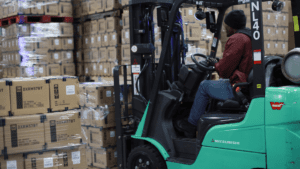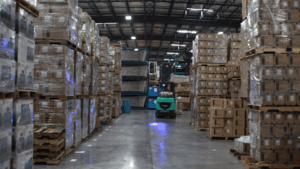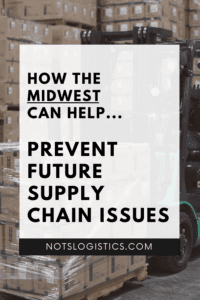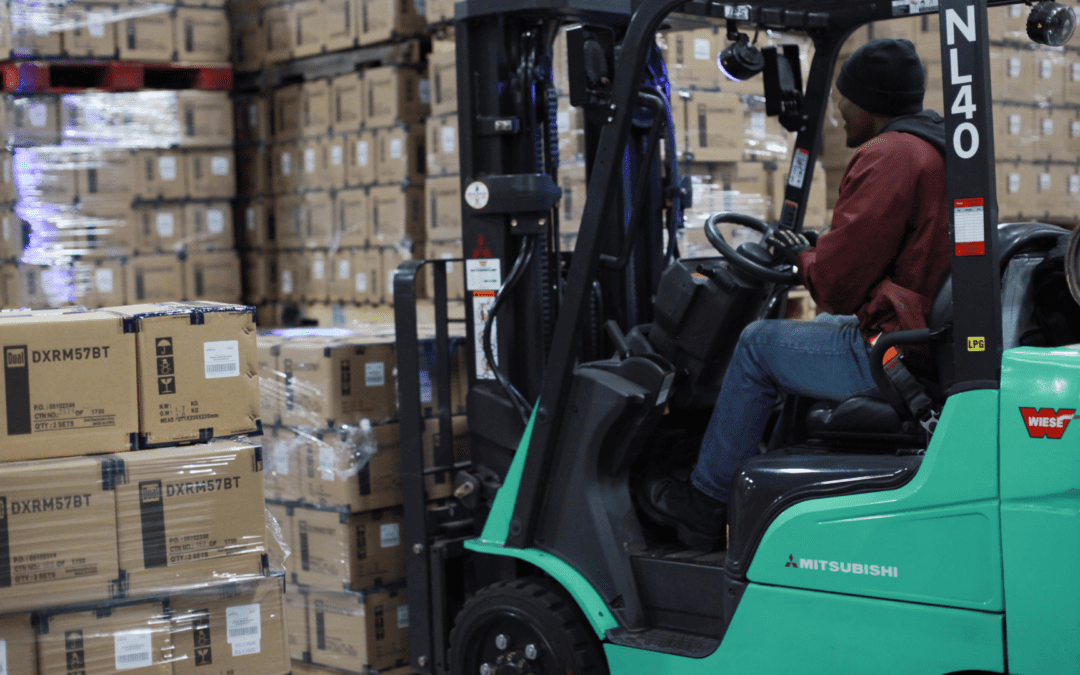
How the Midwest can Help Prevent Future Supply Chain Issues
In 40 years as a third-party logistics professional, I have never spent as much time talking about supply-chain issues. Those of us in the industry are getting daily questions from people who have never thought twice about the way products make it—or don’t make it—onto store shelves or to your living room. By taking steps to prevent future problems, the Midwest can help keep these supply chains running smoothly.
Acknowledging the Supply Chain Issues
In the past, we have seen small parts of the supply chain disrupted by regional issues such as natural disasters. But the supply chain has never been the crux of a national crisis like we are seeing today, with logjams of unprecedented size all over the place, product shortages, and rising public concern.
With labor shortages, higher costs, and a mismatch between supply and demand, the problem is not going away anytime soon. But there are some measures we can take as a country to lessen the effects and avoid future missteps.
First and foremost, let’s acknowledge a silver lining to the crisis: the public is now aware that national and global supply chains play a vital role to our daily lives and to broader economic activity. If nothing else, it is good that more people are aware of the intricacies. Even in the age of e-commerce, we cannot always enjoy a utopia of just-in-time deliveries with no delays. Now that everyone is aware of today’s realities, we can take steps to mitigate the issues and even help prevent them from happening again.
We also need to identify the root causes, and one of the biggest is a lack of fluidity and harmony in the industry. There are a million different ideas about how to fix the logjams but no cohesive effort. That said, the answers should come from the private sector and not from regulations restricting transportation companies and their employees.
Facing Additional Challenges
Another issue is the flow of traffic for imports and exports.
While the west coast, and specifically the Port of Los Angeles, is getting all the attention at the moment because it is the single largest logjam, we must acknowledge that it is unsustainable to have 40% of the country’s cargo flowing through one port both now and in the future. There simply is not enough capacity to meet the demands of all the goods flowing in and out of the country from one place.
When you couple the delays in getting goods offloaded and the lack of available warehouse space, you have makings for unprecedented shipping delays like we’ve seen in 2021.

Using the Midwest to prevent long term shipping delays
As the U.S. spends time and effort dealing with delays like that at the Port of Los Angeles, it must also think ahead to long-term solutions.
Clearing one backup does not mean products will magically show up in stores instantly, and it does nothing to prevent future gridlock. However, using existing storage and logistics capacity in the middle of the country throughout the year would help isolate some of the issues we are facing now. Having a stockpile of goods inland and away from the consistent logistics hot spots year-round could minimize disruption of last-mile delivery to retail outlets or individual consumers.
The Midwest is open for business with opportunities that are not available on the coasts. While the shortage of truckers and workers is extreme on the West Coast, the rest of the country is not necessarily experiencing employment issues to the same degree. We can alleviate some of the problems of today and offer preventative solutions for the future by looking to strategic alliances and leveraging existing resources that our country has in place. It is a matter of working smarter.
Warehouses are being built all over the place as fast as they can be. And inventories must be built up and put in place. It is certainly going to take time and patience for these long-term creative solutions to take hold.
Clearly, the supply chain is key to our economy’s broader success. Without resolving the current gridlock issues and incorporating long-term strategies for these types of issues, we cannot have sustained economic growth.
Andy Kirchner is the Owner and CEO of NOTS Logistics, a customized supply chain solution company with over 4 million square feet of warehouse space and a service area covering the U.S.


